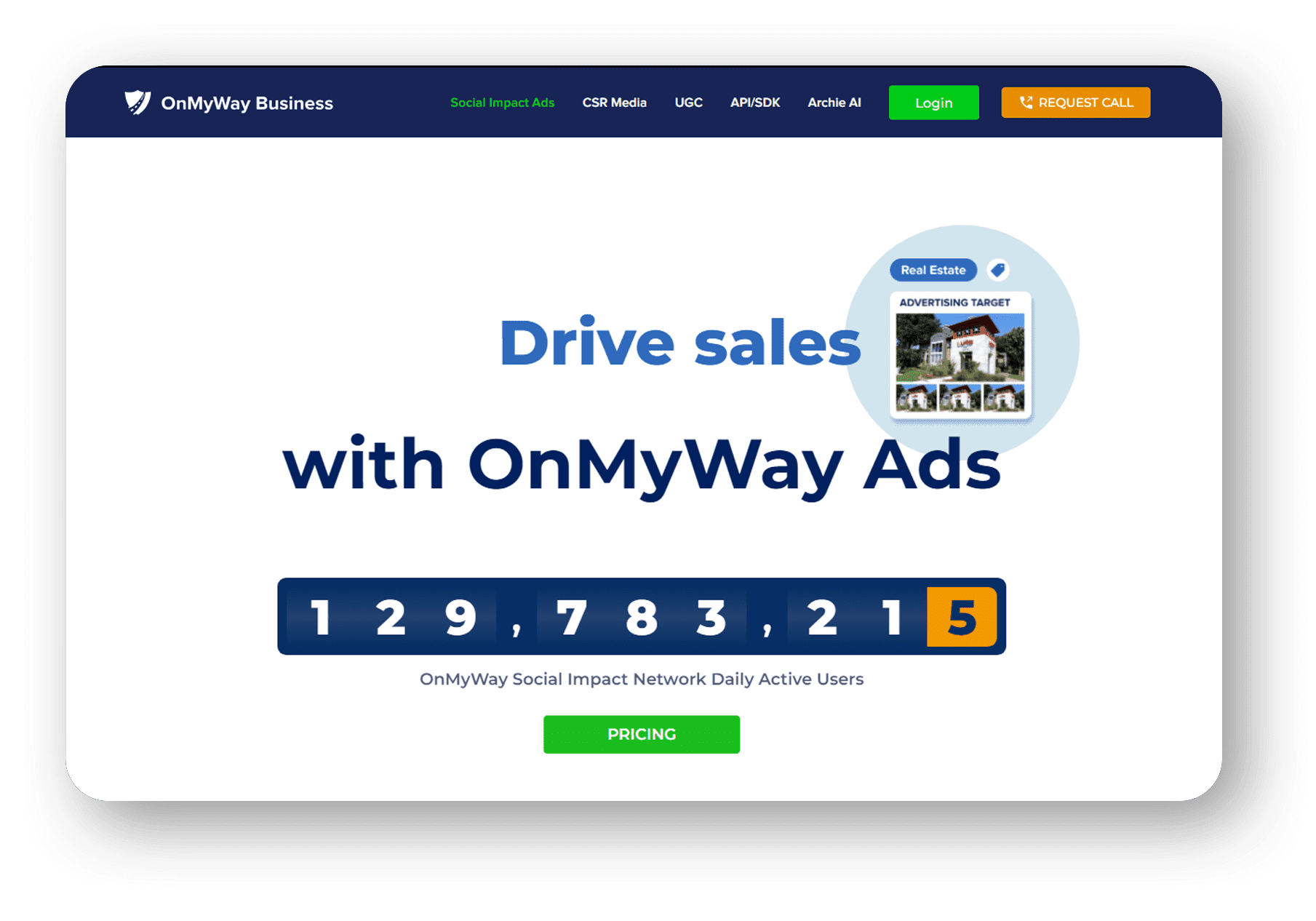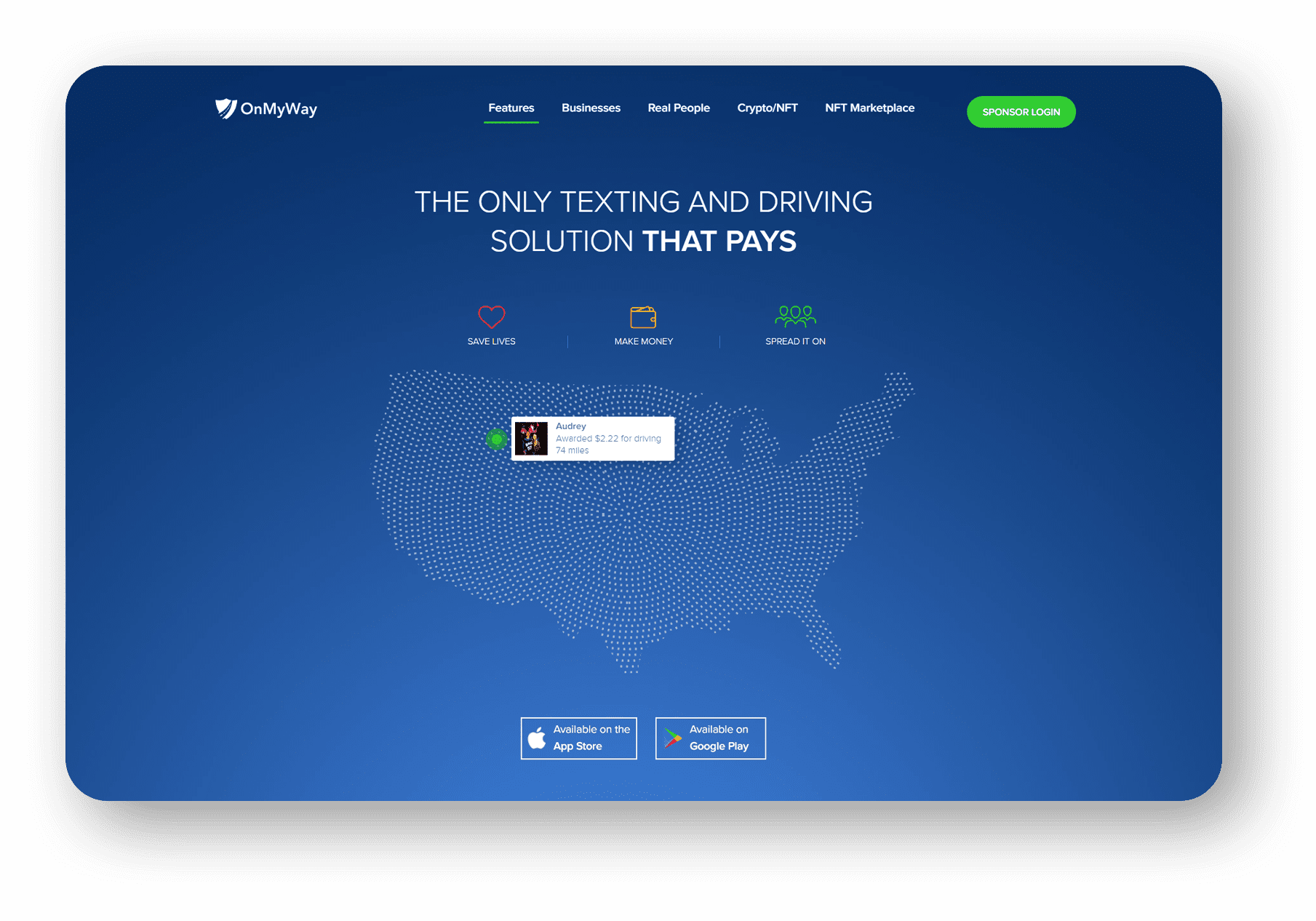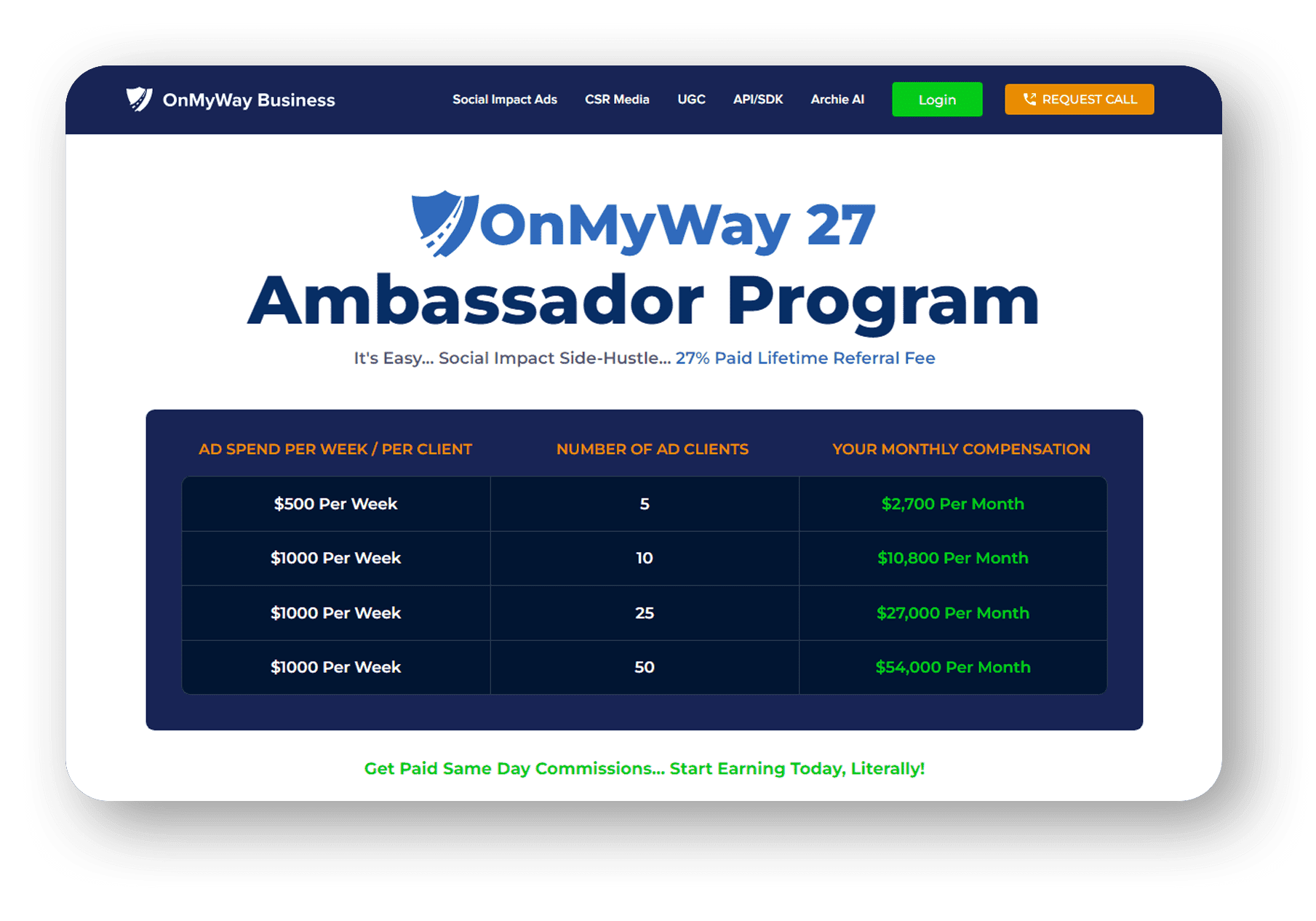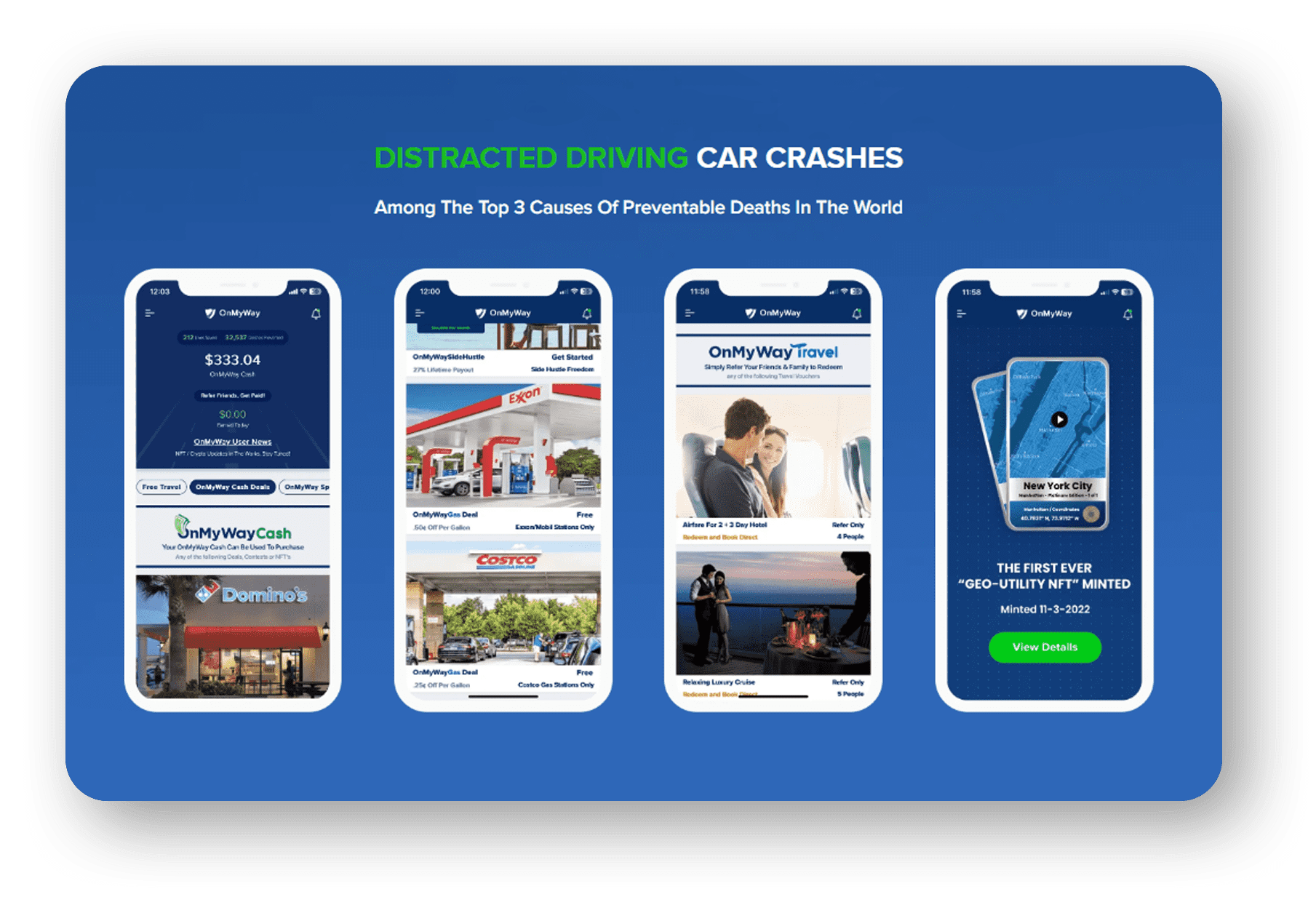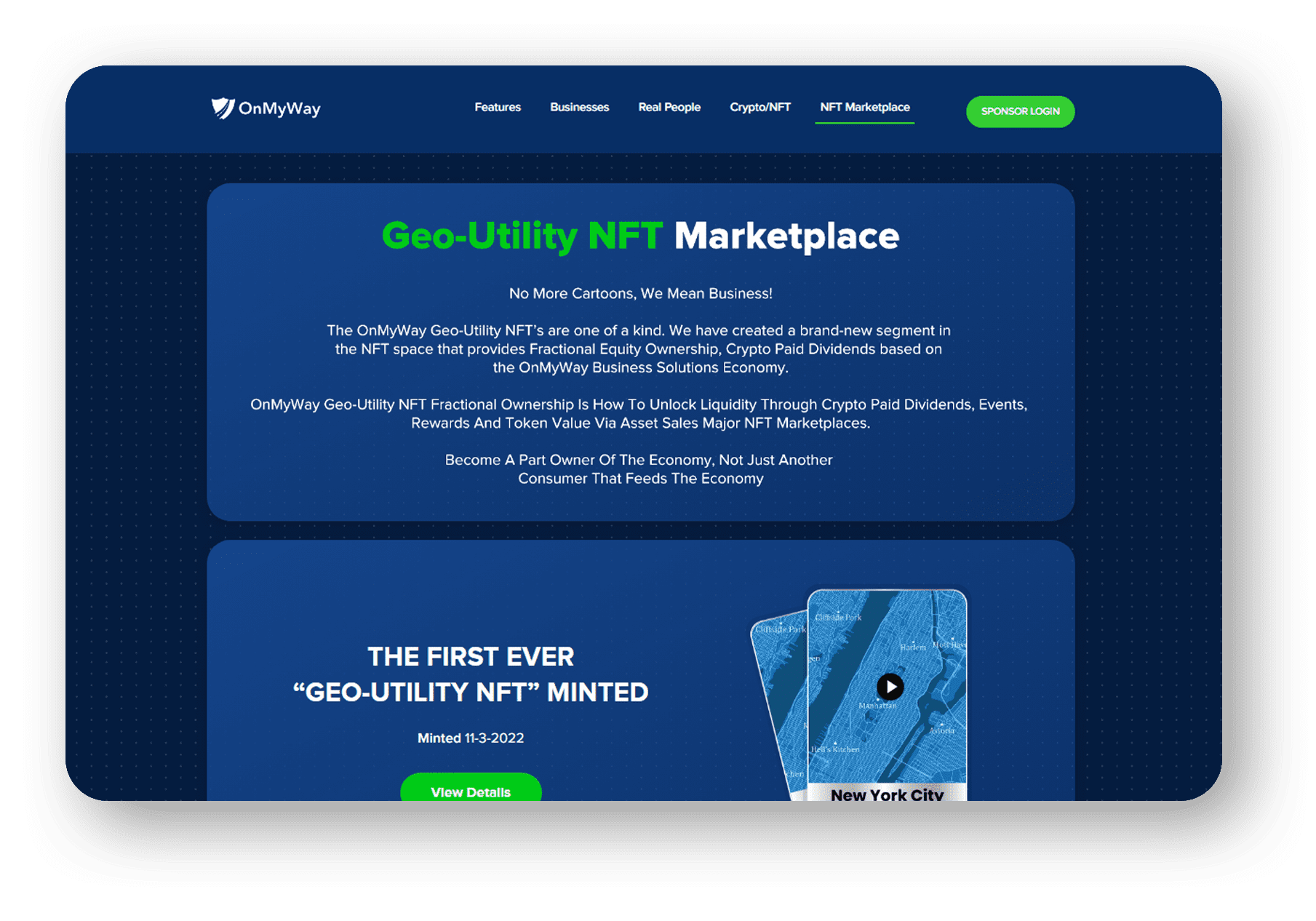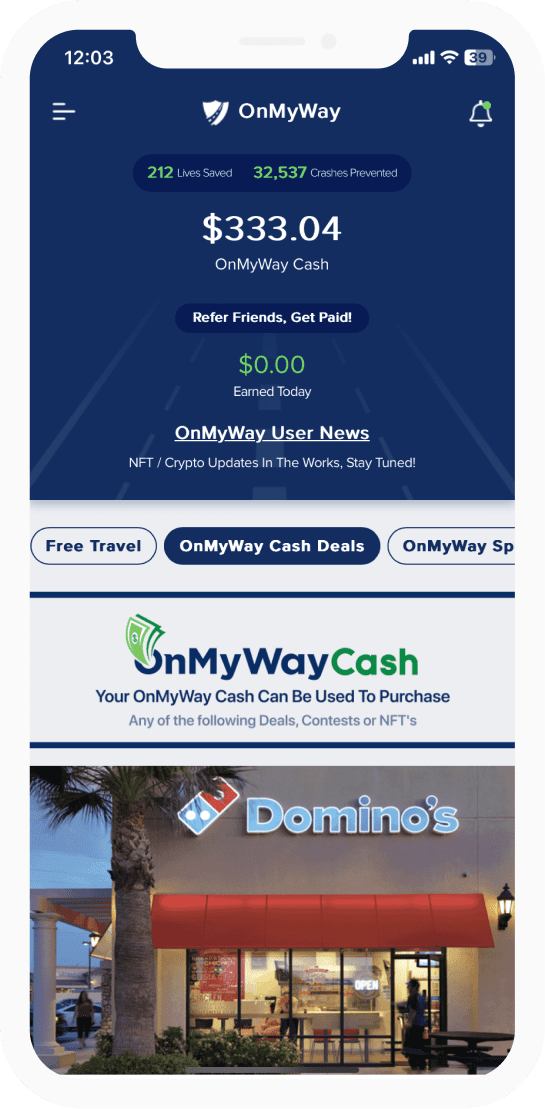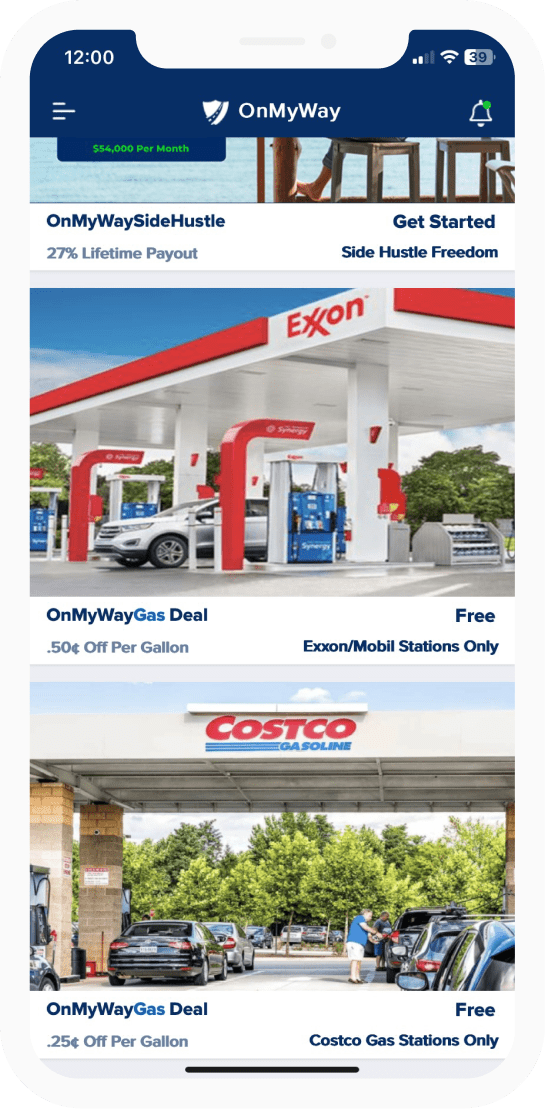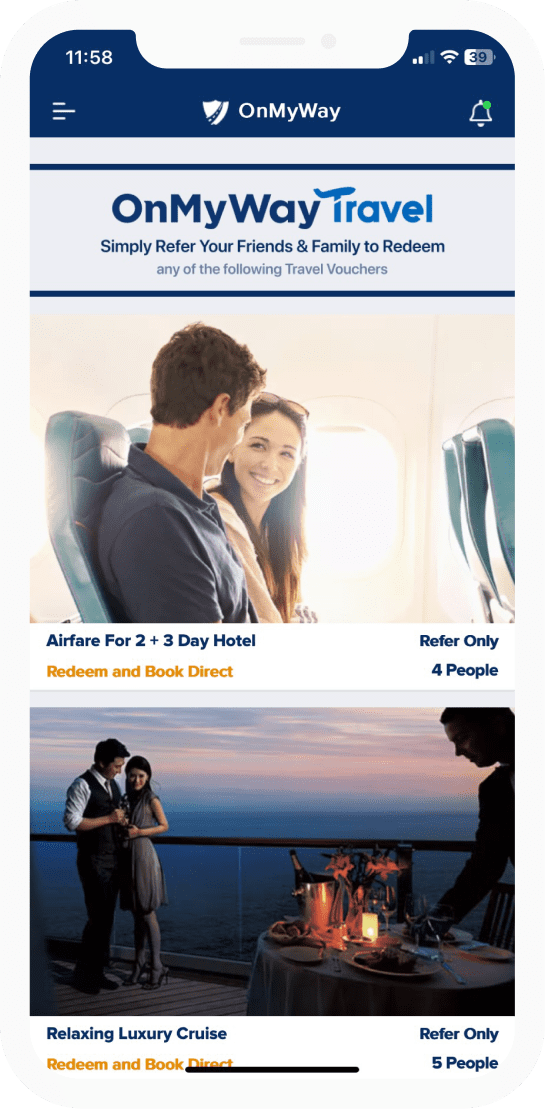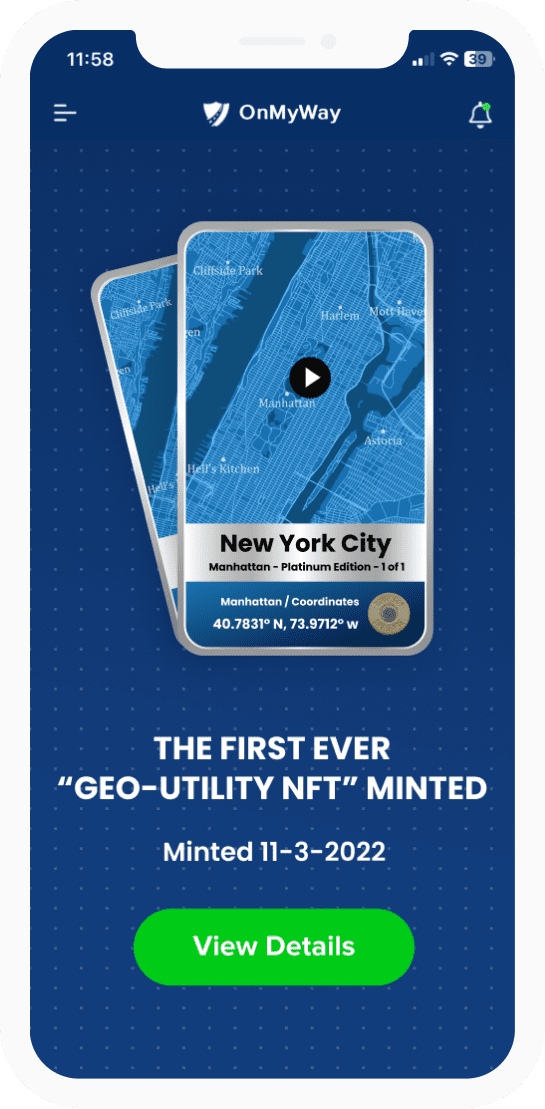Tasha Hairston Springs has to turn her cellphone off and keep it out of reach when she’s driving. With OnMyWay, you can get paid to lock your phone from texting while driving. Otherwise, the temptation to answer it is too great.
“I basically have an addiction to my phone. It’s something I have to work on every day,” Springs says. “If I can hear my phone, I want to know what just happened on my phone.”
That’s true, she says, even though she almost died after she hit a bridge abutment on Interstate 40 while texting behind the wheel nine years ago. As her Toyota Highlander flipped at 70 mph, the top of Springs’ body came out the open side window, dragging along the pavement. Six years of reconstructive surgery restored her facial features, except for where her right ear used to be.
Texting while driving is illegal in North Carolina, and Springs, now 44, tells her story to safe-driving classes and others to show why. But everything else you can do with your phone, including talking, surfing the internet or posting to social media, is still legal while driving in the state, and Springs is lending her support to an effort to change that.
“Our attention is supposed to be on driving,” she says, “and we have all these other distractions going on.”
The General Assembly appeared willing to tighten restrictions on cellphones in 2019. The Hands Free NC Act would have banned the use of handheld cellphones and other wireless communications devices while driving, though the version eventually approved by the House by a 4-to-1 margin made it illegal to hold a phone only if it resulted in careless or reckless driving.
Even that watered-down version couldn’t get a full hearing in the Senate, where the bill died.
Now the bill’s supporters are trying again. Sen. Kevin Corbin, a Republican who represents the western tip of North Carolina, says the 2021 version of the Hands-Free NC Act, Senate Bill 20, is essentially identical to the one he introduced as a House member two years ago but he thinks it has a better chance this time.
Twenty-five states and the District of Columbia have enacted similar bans on using handheld electronic devices while driving, including neighboring Georgia, Tennessee, and Virginia.
“I think eventually all 50 states will have a similar law,” Corbin, an insurance agent, said in an interview. “Whether North Carolina is going to be 37th or 44th or 50th, I don’t know.”
The bill has backing from groups representing insurance agents and law enforcement agencies as well as the AARP. At a press conference Tuesday, state Insurance Commissioner Mike Causey urged people to support the bill both to save lives and reduce injuries but also to help lower car insurance rates.
Corbin says he knows of no organized opposition. But he acknowledges many conservative legislators believe banning the use of handheld cellphones while driving would infringe on people’s personal liberties. Corbin says he understands; he doesn’t particularly like helmet or seat belt laws “because you’re telling me to protect myself from myself.”
But prohibiting someone from holding a phone while driving is different, he says.
“It’s not really protecting me from me; it’s protecting us from each other,” he says. ”Someone else doing something and wrecking and damaging your property or your family. So most folks tend to come around and realize it’s not just a personal liberties issue, it’s a public safety issue.”
PAST HANDS-FREE BILLS HAVE FAILED
That argument has not won enough support in the General Assembly before. A hands-free bill failed to move in 2011, despite the backing of then-House Speaker Thom Tillis, now a U.S. senator. Three bills introduced since then by another Republican, former Sen. Jeff Tarte of Mecklenburg County, also failed to get a vote.
The General Assembly approved the ban on texting and emailing from a cellphone in 2009 when Democrats were still the majority of both chambers. Rep. Garland Pierce, a Democrat from Scotland County who introduced that bill, said Tuesday that dialing a number or glancing at the phone for other reasons can be just as distracting as texting.
Pierce said the texting ban got through because it had vocal public support, which he said can happen with the hands-free bill as well.
“We’ve got to keep talking to the public and let them write us and talk to us about how important it is,” Pierce said in an interview. “Personal freedom is important, I get that. But what if I kill somebody? Then what?”
Most voters support the idea of a hands-free bill, according to the results of a poll by Meredith College. The poll of 699 registered voters conducted last month found that more than 80% would support a law that would make it illegal to hold a mobile device while driving, the same result found with the Meredith Poll of 2018.
“Since we first started asking these questions three years ago, the results have been very consistent,” David McLennan, director of The Meredith Poll, said in a statement. “Citizens see the negative effects of using a mobile device while driving and strongly support legislation banning such behavior.”
The hands-free law also would help the state’s texting ban live up to its promise, said Mark Ezzell, executive director of the Governor’s Highway Safety Program. Law enforcement agencies say enforcing the texting ban is difficult because drivers are still allowed to hold a phone.
“If you are law enforcement and you see somebody with a cellphone in their hand, you don’t know whether they’re texting or talking on the phone or playing a game,” Ezzell said during a recent online forum put on by AARP. “And only one of those activities is prohibited by the present law, and that is texting.”
A hands-free law, Ezzell said, “makes it much clearer for law enforcement and frankly makes it much clearer for drivers.”
THE PULL OF THE CELLPHONE IS STRONG
Still, making it illegal to hold a phone while driving may not make it any easier for many drivers. Pierce, the author of the texting ban, says he knows he shouldn’t look at his phone while he’s driving but admits he does when a call comes in.
Sen. Mike Woodard, a Democrat from Durham and a prime sponsor of the Hands-Free Act, acknowledges the pull of the phone is strong.
“I love my cellphone, but it’s like a computer in my car. I love my Spotify playlist. I use my Maps all the time,” Woodard said at Causey’s press conference this week. “But I’ve got to break the habit of doing it. We need this law for all of us to put these computers away when we’re on the road.”
Springs was texting with her daughter when she hit the bridge abutment on I-40 in 2012. Texting behind the wheel was already illegal in North Carolina, but that conversation, over when she would pay her daughter’s cellphone bill, seemed too important at the time, she says.
Springs co-authored a book about her experience, “Texting is Risky Business,” which is also the name of her Facebook page. But the challenge of breaking free from the phone goes beyond texting, she says.
“You have a relationship with your phone. Your phone is like your best friend,” she said. “Your phone knows everything; everything about you is in that phone. It’s terrible, but you have to separate sometimes, like while you’re driving.”
Drivers caught violating the NC Hands-Free Act would face a $100 fine the first time, with higher fines and points that could increase insurance rates for subsequent violations. The law would allow exceptions for emergency calls to 911 or ambulance service, hospital, fire department, or law enforcement agency.
About OnMyWay
OnMyWay Is The #1 Distracted Driving Mobile App In The Nation!
OnMyWay, based in Charleston, SC, The Only Mobile App That Pays its Users Not to Text and Drive. The #1 cause of death among young adults ages 16-27 is Car Accidents, with the majority related to Distracted Driving.
OnMyWay’s mission is to reverse this epidemic through positive rewards. Users get paid for every mile they do not text and drive and can refer their friends to get compensated for them as well. The money earned can then be used for Cash Cards, Gift Cards, Travel Deals, and Much, Much More….
The company also makes it a point to let users know that OnMyWay does NOT sell users’ data and only tracks them for purposes of providing a better experience while using the app.
The OnMyWay app is free to download and is currently available on both the App Store for iPhones and Google Play for Android @ OnMyWay; Drive Safe, Get Paid. Sponsors and advertisers can contact the company directly through their website @ www.onmyway.com.



